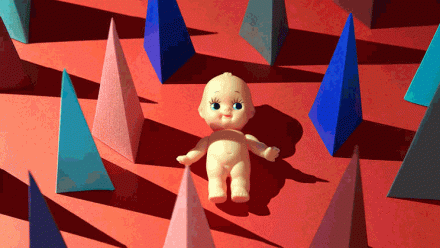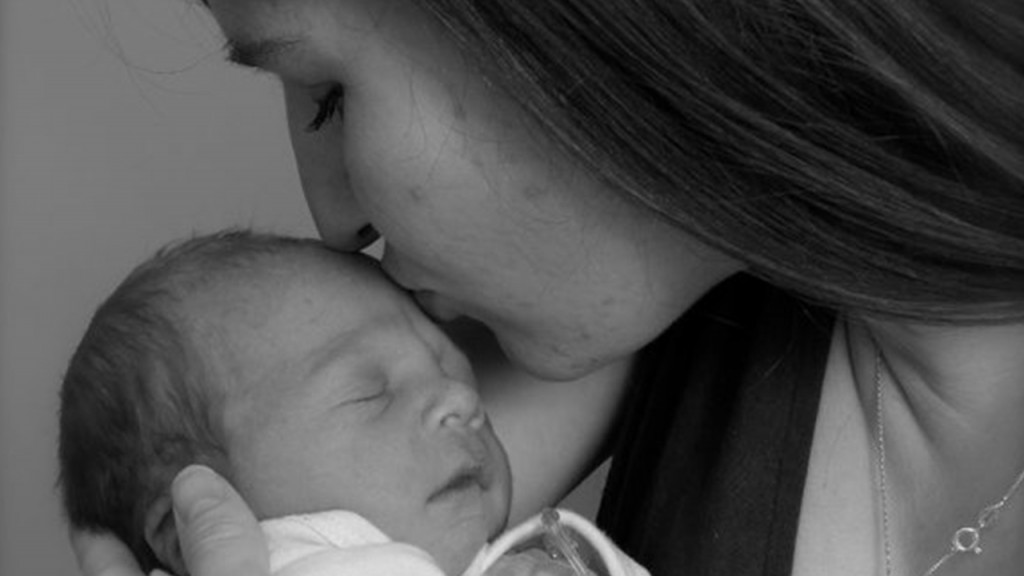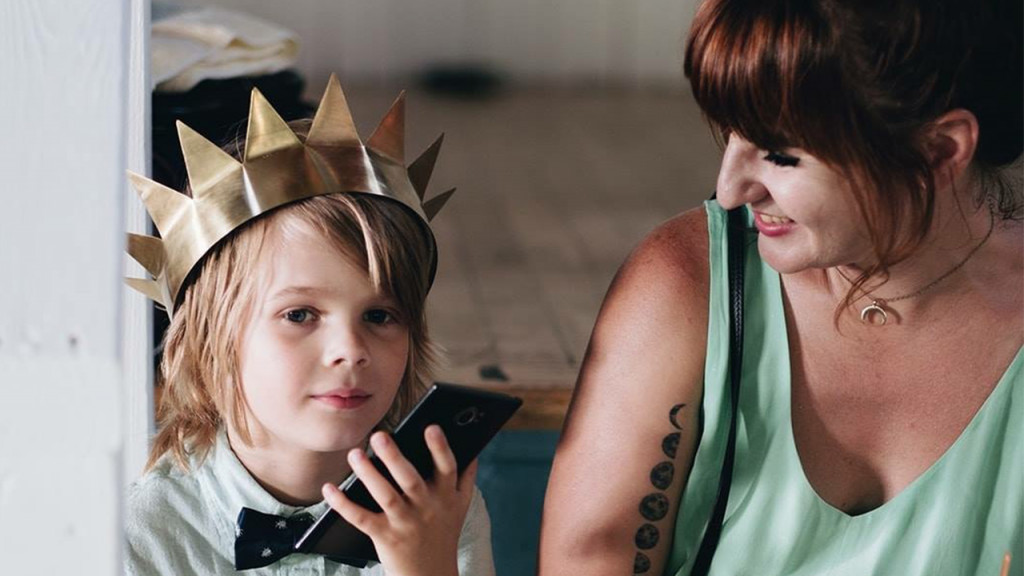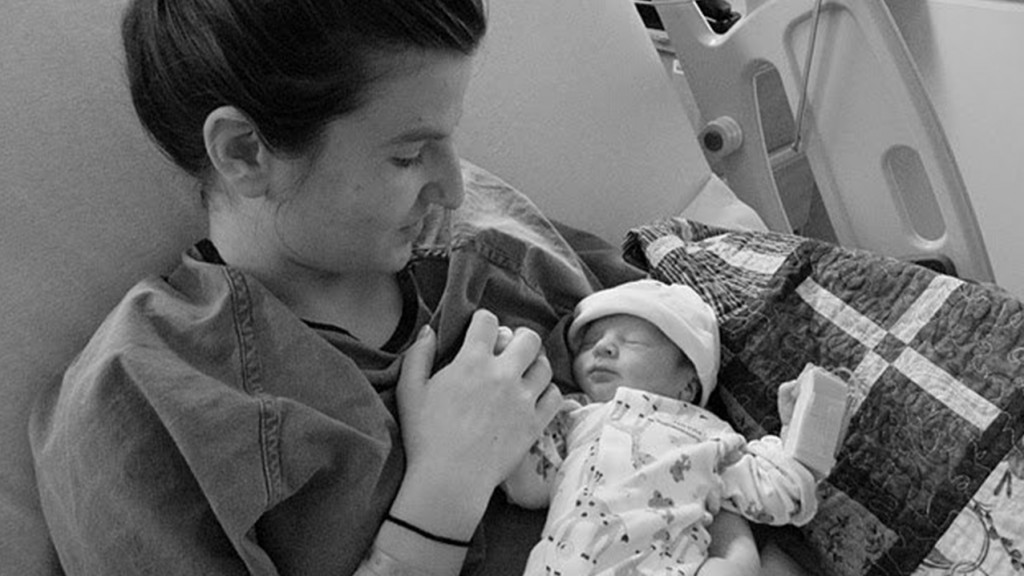Photo: Courtesy of Anne Thériault
I spent years of my life being asked if I planned to have kids. And then, before the incision from my c-section had even healed, people began asking me if I was going to have another. The first question was exquisitely inappropriate, but at least I knew how to answer it. The second one—which, now that my son is eight, has acquired a doubtful tone, as in: “surely if you were going to have more kids, you would have done it by now”—is much more difficult.
I still don’t know the answer.
The thing is, I love being a mother. I don’t just mean that I love my kid, although I do, of course; I love his strange non-sequiturs, his funny frankness, the way his hand sometimes slips into mine while we’re walking down the street. As complex and banal as it is, there’s something about being a mom that brings me profound joy. I’m so overwhelmed by my desire for another child that I struggle to find the right word for the feeling. Is it an ache? A yearning? Whatever it is, it dogs me. But I’m also terrified the darkness that gripped me after my son’s birth would come roaring back.
The first few weeks of my son’s life were like a black hole: airless, all-consuming, a place where the laws of the universe as I had understood them no longer made sense. I couldn’t sleep, even though I was exhausted. Feeding was a struggle, and I wept through every nursing session. Even though I had more than enough milk, my son was having trouble gaining weight. His mouth was too small to latch, and his low-calorie intake meant that he didn’t have the energy to suck for long. Being unable to feed my child—even as my breasts were heavy with milk—felt like a primal failure. Whenever he cried, which was often, it felt like my nerves were on fire. I thought constantly about suicide, not because the feelings were so unbearable, but because I was certain that I was deeply inadequate as a mother.
I actually believed I was somehow harming my son, although I couldn’t articulate how or why. I just knew it, like I knew my age or my name; I thought that if I died, someone else would have to care for him, and he would be far better off.
I felt very alone in these frightening thoughts, but I’ve since learned that I what I went through wasn’t at all rare. A recent Statistics Canada survey found that nearly a quarter of Canadian women who recently gave birth experience symptoms of postpartum depression or anxiety; of those women, 12 percent report thoughts of self-harm. Those numbers are staggering on their own, but even more so when I consider how alone I felt when my postpartum depression was at its worst. I’d bought into the idea that my son’s arrival would be the happiest time of my life. When it wasn’t, I felt a profound sense of shame. I was afraid to ask for help, because that felt like admitting I was a bad mother. And, even on the darkest days, the days when I wanted to die, I still desperately wanted to be a good mother.
So when I’m asked if I’m going to have another kid, if I’ll do it all over again, I never know what to say and always seem to end up sharing too many of these painful personal details. All I know is that the more time passes, the less control I will have over my choice. Sooner than I would like to admit, the answer will be no, whether I like it or not.
I was too frightened to get help
My pregnancy had been physically easy—I had no morning sickness, my discomfort was minimal, and I’d found the physical changes oddly fascinating. It seemed incredible to me that my body knew how to assemble a whole baby out of just two cells, how to expand and shift in exactly the right way; in moments that became more and more frequent as the months dragged on, I wondered if it really did know. The process seemed so inscrutable, so fragile, somehow, and my body was so fallible. How could I trust it? But also: what other choice did I have?

How to deal with postpartum anxietyI became obsessed with all the things that could go wrong. I was especially fixated on the idea of contamination, afraid that I would eat or drink or inhale something that would hurt the baby. The two glasses of beer I’d consumed before I’d known I was pregnant haunted me. I kept a list of fish rated by mercury level in my purse. One morning, I wondered if the fumes from the moth balls in my closet might be toxic, and I panicked for hours, even after poison control had reassured me that it was fine. On some level, I knew that I was beyond the realm of run-of-the-mill new mom anxiety, but I couldn’t stop. The world was full of invisible dangers, and I couldn’t let my guard down. My baby’s life depended on it.
I was too frightened and ashamed to talk to my doctor about my mental health. I worried that I’d seem like an unfit mother or that she’d try to convince me to take medication—the thought of which triggered further paranoia about contamination. Anyway, I told myself, I only had to manage it for a few more months, and then the baby would be born and I would be able to see for myself that he was fine.
Maybe that’s what would have happened if I’d had an uncomplicated birth, but instead I went into labour six weeks early and wound up requiring a c-section. During the surgery, as my son was being yanked out of me, I overheard one of the doctors say that he’d found the cause of all my problems: my uterus, apparently. One of the nurses explained to me that it had a congenital malformation, and that was why the baby was so small and early and feet-first. There was also something wrong with his breathing: he was grunting, which wasn’t good. They whisked my son off for x-rays and C-PAP and my husband went with him, while I was left alone in the recovery room, my body shaking so hard from the anaesthetic that my arms rattled against the railings of the bed.
When a nurse came by to help me express colostrum, grabbing and painfully mashing my breasts, I asked again about the uterine malformation. She repeated what I’d been told in the operating room, and added that it also brought an elevated risk of miscarriage and fetal abnormalities. All those months I’d been worrying about the alcoholic content of red wine vinegar, and meanwhile it was my own body that had been the biggest danger to my child.
Three days later, we were discharged; a week after that, my husband went back to work. Alone and still recovering from surgery, my obsessions swelled until they obliterated everything else. Everything my son did—every movement, every cry, every sidelong glance—seemed to confirm my certainty that there was something wrong with him, something that was my fault. When I’d been pregnant, I’d at least understood that my fears weren’t completely rational, but my confidence in recognizing what was reasonable and unreasonable was fading. The worse I felt, the more I was sure that I was some kind of monstrous mother and that this was my punishment.

A stressful transition
“New parenthood is incredibly stressful,” says Lindsay Ross, a Toronto-based social worker and therapist who specializes in maternal mental health. “You’ve transitioned into a new life, and you’re taking care of a baby, and you’re experiencing a loss of independence and the loss of who you were before. Sleep disruption can be incredibly hard on people. And the baby is like a stranger in a lot of ways; instinctual maternal connection doesn’t necessarily always happen. But there’s this conception that moms can do it all, that you shouldn’t have to ask for help.”
Most mothers struggle at least somewhat in the early days of parenting, Ross says. For some—especially people like me, who have a history of depression or anxiety—that struggle can bloom into a full-blown mental health crisis.
It was my visiting mother-in-law who pushed me to get help, after seeing me lie in bed and cry helplessly for hours at a time. There wasn’t much help to get, though, really; my doctor prescribed an SSRI for me and referred me to a postpartum mood disorder program at a local hospital, but the program had a two-month waiting list. There was nothing else, short of being admitted to a psychiatric ward, but that was a last resort. So I kept shuffling through my days and nights, isolated and guilt-ridden and so mind-numbingly tired.
Eventually things got better. The medication kicked in, a spot opened up in the hospital program, my son began to hit milestones and thrive. I mentally boxed off the first few months of my son’s life and refused to think about them. Every once in a while, something would hit me sideways—attending a friend’s baby shower, or finding a tiny crumpled onesie at the bottom of the hamper—and I would realize how raw the wound still was.
The question unfolds like one of those old highway maps that people used to keep in their glove compartment, expanding into more and more questions. Can I handle a second child? Am I being selfish, putting my nebulous desires ahead of other people’s well-being? What if I got sick again and never get better? How would that affect my husband and son? Could it really be any different the second time around?
The landscape of postpartum healthcare is changing, slowly. “The scarcity of affordable, evidence-based psychological treatment is a problem and access is a problem,” Simone Vigod, a psychiatrist and clinical researcher at Women’s College Hospital. “It’s hard for women to take time off work to come to regular appointments while pregnant, and it’s also hard for them to come once they have the baby. We’re trying to leverage technology to make things easier for moms to get treatment without those barriers.”

She’s working to improve maternal mental health care in Toronto, such as an online patient decision aid that will help women figure out if anti-depressant use during pregnancy is right for them, which is currently in the clinical trial stage, and a therapist-facilitated online postpartum mental health support group called Mother Matters that launched in 2016 and is already being used across Ontario. The fact that both can be accessed through a smart phone is the key.
The resources that are available are excellent, Ross says, “but like with accessing any sort of mental health resources, they’re definitely lacking. They can be difficult to access, and the wait lists for psychiatric care are long. Private practice can be a solution, but that costs money.”
I know that I was one of the lucky ones, in some respects: I had a supportive partner, I had access to what little care was available, I could afford medication and getting to appointments wasn’t a problem. If postpartum depression felt so terrifying and destabilizing for me, I can’t imagine how much harder it would be for women who don’t have these privileges.
It’s frustrating to live in a country that prides itself so much on its health care system and seems to wilfully ignore the huge gaps that exist when it comes to mental health. Usually when we talk about reproductive rights, it’s reduced to a binary of terminating or continuing a pregnancy, but the truth is that there are so many facets, including appropriate healthcare for mother and child. Without a robust support system for maternal mental health, our system fails so many new mothers.
Both Vigod and Ross assure me that things are getting better. Conversations about antenatal and postpartum mood disorders are broadening, and some of the stigma is lessening; hopefully this will translate into more programs to help new mothers who are struggling.
And my interview with Ross ends on an optimistic note. She tells me that women who have a history of postpartum depression fare better in future pregnancies if they plan in advance, making sure they have a healthcare team and support network firmly in place long before they give birth. Even just knowing that there are other mothers like me, mothers who went through that darkness and had subsequent pregnancies and helped create healthier outcomes for themselves gives me hope. It feels like one more puzzle piece to add as I try to figure out the answer.
Read more:
I’m a better mother because I only have one child
Why are our healthcare systems failing postpartum moms?


